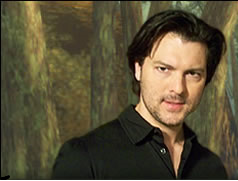A Quote by David Hayter
Movies are designed to tell us stories, engage us on an emotional level and keep our attention. This can be done with a wide range of emotional triggers - Love, adrenaline, comedy. But fear is a highly potent sensation.
Related Quotes
Emotional dependence is the opposite of emotional strength. It means needing to have others to survive, wanting others to "do it for us," and depending on others to give us our self-image, make our decisions, and take care of us financially. When we are emotionally dependent, we look to others for our happiness, our concept of "self," and our emotional well-being. Such vulnerability necessitates a search for and dependence on outer support for a sense of our own worth.
Healing ourselves on the spiritual level involves developing a strong connection with our soul. We heal ourselves on the mental level as we become aware of our core beliefs, release those that limit us, and open to more supportive ideas and greater understanding. Emotional healing takes place as we learn to accept and experience the full range of our feelings. And we heal ourselves on the physical level when we learn to honor and care for our bodies, and for the physical world around us.
The most often repeated commandment in the Bible is 'Do not fear.' It's in there over two hundred times. That means a couple of things, if you think about it. It means we are going to be afraid, and it means we shouldn't let fear boss us around. Before I realized we were supposed to fight fear, I thought of fear as a subtle suggestion in our subconscious designed to keep us safe, or more important, keep us from getting humiliated. And I guess it serves that purpose. But fear isn't only a guide to keep us safe; it's also a manipulative emotion that can trick us into living a boring life.
Always tell us where we are. And don't just tell us where something is, make it pay off. Use description of landscape to help you establish the emotional tone of the scene. Keep notes of how other authors establish mood and foreshadow events by describing the world around the character. Look at the openings of Fitzgerald stories, and Graham Greene, they're great at this.
What does it matter, if we tell the same old stories? ...Stories tell us who we are. What we’re capable of. When we go out looking for stories we are, I think, in many ways going in search of ourselves, trying to find understanding of our lives, and the people around us. Stories, and language tell us what’s important.
In the Christian sense, love is not primarily an emotion but an act of the will. When Jesus tells us to love our neighbors, he is not telling us to love them in the sense of responding to them with a cozy emotional feeling. You can as well produce a cozy emotional feeling as you can a cough or sneeze. On the contrary, he is telling us to love our neighbors in the sense of being willing to work for their well-being even if it means sacrificing our well-being to that end.
Stories set the inner life into motion, and this is particularly important where the inner life is frightened, wedged, or cornered. Story greases the hoists and pulleys, it causes adrenaline to surge, shows us the way out, down, or up, and for our trouble, cuts for us fine wide doors in previously blank walls, openings that lead to the dreamland, that lead to love and learning, that lead us back to our own real lives as knowing wildish women.
Vulnerability is not weakness, and the uncertainty, risk, and emotional exposure we face every day are not optional. Our only choice is a question of engagement. Our willingness to own and engage with our vulnerability determines the depth of our courage and the clarity of our purpose; the level to which we protect ourselves from being vulnerable is a measure of our fear and disconnection.
I think baseball is a great support to people who have emotional voids, gaps, emotional difficulties. That is to say: all of us. Those parts of us that don’t function well. Those parts of us that are sad or depressed—not every day. They can really use baseball. It isn't just the child in a wheelchair or the shut-in senior citizen listening to the radio that needs the game. There’s part of us, part of everybody who’s a baseball fan, who needs the game at that level.
The more two people open to each other, the more this wide-openness also brings to the surface all the obstacles to it: their deepest, darkest wounds, their desperation and mistrust, and their rawest emotional trigger points. Just as the sun's warmth causes clouds to arise by prompting the earth to release its moisture, so love's pure openness activates the thick clouds of our emotional wounding, the tight places where we are shut down, where we live in fear and resist love.




































